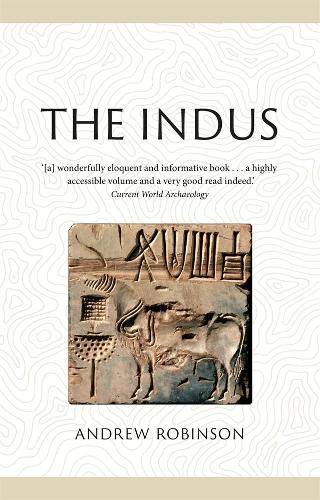
The Indus: Lost Civilizations
(Paperback)
Publishing Details
The Indus: Lost Civilizations
By (Author) Andrew Robinson
Reaktion Books
Reaktion Books
1st May 2021
15th February 2021
United Kingdom
Classifications
General
Non Fiction
History
General and world history
Ancient history
934
Physical Properties
Paperback
208
Width 138mm, Height 216mm
Description
An accessible introduction to the Indus, an extraordinary and tantalising 'lost' ancient civilisation.
The Indus civilisation flourished for half a millennium from about 2600 to 1900 BC, when it mysteriously declined and vanished from view. It remained invisible for almost four thousand years, until its ruins were discovered in the 1920s by British and Indian archaeologists. Today, after almost a century of excavation, it is regarded as the beginning of Indian civilisation and possibly the origin of Hinduism. The Indus: Lost Civilizations is an accessible introduction to every significant aspect of an extraordinary and tantalising 'lost' civilisation, which combined artistic excellence, technological sophistication and economic vigour with social egalitarianism, political freedom and religious moderation. The book also discusses the vital legacy of the Indus civilisation in India and Pakistan today.
Reviews
[a] wonderfully eloquent and informative new book . . . Robinson examines by chapter every aspect of this deliciously intriguing civilisation, from religion, society, art, trade, and agriculture, to their origins, disappearance and rediscovery . . . a comprehensive account of the Indus people, condensed into a highly accessible volume and a very good read indeed. Current World Archaeology; a very well-written, well-illustrated popular account of the Indus civilization. . . . This new work is an important addition to the literature because of the authors extensive knowledge of the subject, his use of the most recent sources, and his succinct but engaging style. Choice; Robinsons detailed, yet gripping and clear, portrait of this important cultural ancestor is highly recommended. Fortean Times; Andrew Robinsons new book is a clear summary of what we know, and a tantalising account of what we might yet know . . . Robinson does a commendable job of laying out the evidence in all its incompleteness and ambiguity. Minerva; Robinson writes with an elegant clarity which comes from a masterly overview of the subject and transmits some of the mysterious excitement which this enigmatic civilisation evokes. Journal of the Royal Asiatic Society; Andrew Robinson does an excellent job of condensing key Indus issues to their core, framing them in terms accessible to the intelligent enthusiast and archaeologist alike. Robinson is a superb writer. With numerous other books on ancient civilizations to his credit, he knows how to make things interesting without going into numbing detail, always keeping the narrative thread alive . . . well-illustrated and highly recommended. Omar Khan, Harappa.com; Andrew Robinson creates a brilliant portrait of one of the worlds most enigmatic early civilizations. In doing so, he crosses the boundaries between different academic disciplines with effortless panache and high learning. This succinct account of the Indus civilization, its script, religious beliefs, and its complex inheritance, places a vigorous, urban society in its rightful historical context. Everyone interested in ancient civilizations should read this eloquent, closely argued biography (it is nothing less) that brings the Indus people in from the historical shadows. Brian Fagan, Emeritus Professor of Anthropology, University of California, Santa Barbara, and author of The Great Warming and Elixir: A History of Water and Humankind.; The Indus is very well written and eminently readable . . . Andrew Robinson deals with all the unsolved problems in a fair manner and with balanced judgement . . . a valuable contribution to the literature on the Indus Civilization. Iravatham Mahadevan, epigraphist of the Indus Valley Civilization
Author Bio
Andrew Robinson is the author of some 25 books on the arts and sciences, and writes for Current World Archaeology, The Lancet, Nature and Science. His recent books include Lost Languages: The Enigma of the Worlds Undeciphered Scripts (2009), Earthquake: Nature and Culture (Reaktion, 2012) and India: A Short History (2014). He has been a Visiting Fellow at the University of Cambridge and is a Fellow of the Royal Asiatic Society.
